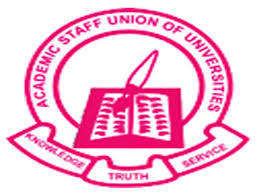After holding its congress at the Delta State University (DELSU), Abraka, Academic Staff Union of Universities (ASUU) of the Benin zone has vowed that the strike continues unless the Federal Government revert to the 2009 ASUU/FGN agreement which both parties willingly signed and implement it to the last letter.
The lecturers union had accused government of being insensitive to the plight of Nigerians by not meeting their demands as contained in the MoU.
At the end of their meeting a statement was signed by Chairman of DELSU ASUU, Emmanuel Mordi; Chairman of UNIBEN ASUU, Anthony Moye-Emina; Chairman of AAU ASUU, Fred Esumeh; Chairman of NDU ASUU, Beke Sese; and Coordinator of ASUU in the zone, Sunny Ighalo .
Ighalo insisted that the union was not on strike to make fresh demands, and neither was it ready to renegotiate the existing agreement.
“We are calling on the government to implement the 2009 ASUU/FGN agreement it willingly signed with the union in 2009,” he added.
This is despite the release of N100 billion by the Federal Government to ease the burdens in the universities.
But the lecturers union accused the Federal Government of instigating a “divide and rule” by trying to buy in the Committee of Pro-Chancellors and Committee of Vice Chancellors with the latest release of another N30 billion.
According to him, “though N500 billion was expected from the government based on Needs Assessment carried out and contained in the MoU of January 2012 for revitalization of the universities, government claimed it distributed N100 billion most of which were promissory notes.
He noted that parents and students alike, need to understand the stance of the lecturers that it is being directed towards helping in the revitalization of the comatose education system in the country which had almost collapsed.
“The ASUU has been on a nationwide total and indefinite strike to express its frustration over the continuing reluctance of government to fully implement vital aspects of the 2009 FGN/ASUU agreement as captured by the MoU of January 2012.
“This struggle, which has now entered its ninth week, is driven by the unshakable resolve of our members to stem the continuing trend with successive governments of Nigeria, to systematically destroy public education through neglect and near total abandonment.
“The strike has indeed moved into a critical stage where government is now applying the instrument of intimidation and blackmail and other gimmicks to undermine the struggle,” Ighalo said.
In his comments on the strike, Benue State Governor, Gabriel Suswam, revealed that his state’s university, Benue State University (BSU), has already received about N950 million from the N100 billion earlier released by government when he confirmed that the Federal Government had on Tuesday released another N30 billion for federal universities in the country.
The Governor said this on Thursday, when he hosted officials of the National Union of Benue State Students (NUBESS) led by its President, Matthew Mamwoo, at the Government House, Makurdi,.
Suswam called on students to “engage ASUU in dialogue”, stressing that the lecturers have no reason being on strike.
He lamented a situation whereby ASUU was still insisting that government pay a total of N92 billion because “it is not practical” after government has shown commitment by paying N30 billion.
Nevertheless, the minister of Information, Labaran Maku, in his usual alleged tacky manner of handling government resolution, described ASUU’s demands as mundane, saying, “The striking lecturers’ grievances are tied around earned allowances but they forget that government in the past two years has never defaulted in the payment of their statutory salaries.”
Maku noted during an interactive forum with journalists in Abuja, said huge money being spent on the sustenance of peace, particularly in the crisis-ridden North East states, was indirectly having its toll on the resources available for educational development.
He pleaded that Nigerians should try to come to terms with the predicament government faces in all sectors of the economy and refrain from assessing the administration of President Goodluck Jonathan as under-performing.
“People are quick to point accusing fingers on the Federal Government, even when things are not working at the state level.
“Take the issue of primary school education for instance, it is the responsibility of states and local governments to provide basic education for citizens in their states, not the responsibility of the Federal Government, but we go out of our way to intervene in the education sector, which accounts for why Federal Government released funds for the building of ‘almajiri’ schools in the North.
“What ASUU is clamouring for bothers on allowances, not unpaid salaries and government has provided N30 billion for a start, yet they are not satisfied.
“It is not only in education that we have challenges, we have challenges in almost all the sectors, from insecurity, aviation, agriculture, power and a host of others.
“But we appeal to Nigerians to understand our predicament as a nation, look at what we have spent on insecurity, which is far higher than education; we are calling on our people to give peace a chance, as we generate more monies through tax revenues more funds will then go into education,” he stated,

